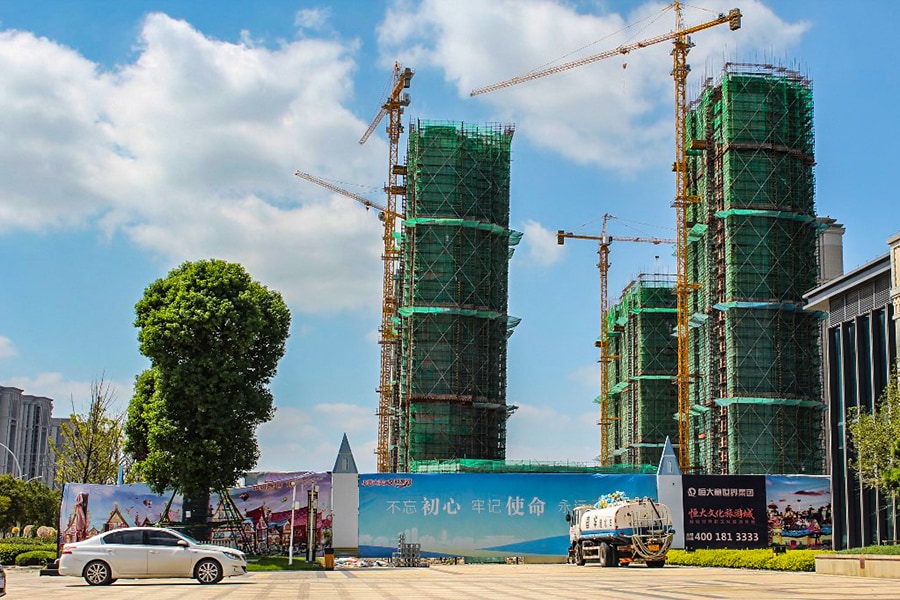
Beyond Evergrande's troubles, a slowing Chinese economy
Heavy government spending on new rail lines, highways and other projects is keeping the economy afloat right now but may not be sustainable through next year
 The halted under-construction Evergrande Cultural Tourism City, a mixed-used residential-retail-entertainment development, in Taicang, Suzhou city, in China's eastern Jiangsu province. September 17, 2021 Image by Jessica YANG / AFP
The halted under-construction Evergrande Cultural Tourism City, a mixed-used residential-retail-entertainment development, in Taicang, Suzhou city, in China's eastern Jiangsu province. September 17, 2021 Image by Jessica YANG / AFP
BEIJING — Global markets have watched anxiously as a huge and deeply indebted Chinese property company flirts with default, fearing that any collapse could ripple through the international financial system.
China Evergrande Group, the developer, on Wednesday said it reached a deal that might give it some breathing room in the face of a bond payment due the next day. But that murky arrangement does not address the broader threat for Beijing’s top leaders and the global economic outlook: China’s growth is slowing, and the government may have to work harder to rekindle it.
Retail sales were much weaker than expected last month in China, led by slow car sales. Industrial production has slackened, particularly for large freight trucks. And developers sharply reduced new housing projects over the summer, while rushing to finish the projects they had already started.
Heavy government spending on new rail lines, highways and other projects is keeping the economy afloat right now but may not be sustainable through next year.
Markets have been riveted by the idea that Evergrande could be China’s “Lehman moment,” a reference to the collapse of the Lehman Bros. investment bank back in 2008 that kicked off the global financial crisis. While many economists in China are pouring cold water over the idea of potential financial contagion, they are pointing to the broad weakness in China’s property market, a mainstay of the economy, and other long-term threats.
©2019 New York Times News Service







